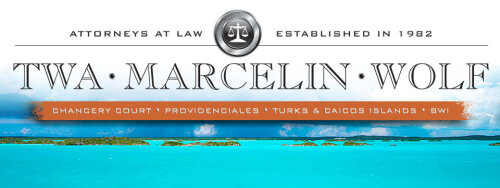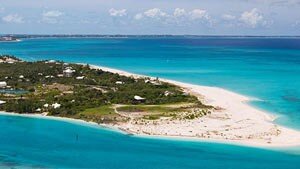Best Sanctions & Export Controls Lawyers in Providenciales
Share your needs with us, get contacted by law firms.
Free. Takes 2 min.
List of the best lawyers in Providenciales, Turks and Caicos Islands
About Sanctions & Export Controls Law in Providenciales, Turks and Caicos Islands
Sanctions and export controls are areas of law that govern the movement of goods, services, funds, and technologies across borders, as well as the implementation of restrictions on certain countries, entities, or persons. In Providenciales, Turks and Caicos Islands, these laws ensure that businesses and individuals comply with international obligations and local regulations that restrict or control trade with specified countries or parties. As a British Overseas Territory, Turks and Caicos Islands frequently align its sanctions regimes with those of the United Kingdom, adhering to both local and applicable UK laws concerning sanctions and export controls. These rules are especially relevant for those involved in international trade, banking, and financial services operating out of Providenciales.
Why You May Need a Lawyer
Legal assistance is often essential when navigating the complex landscape of sanctions and export controls in Providenciales. Here are some common situations where you might need expert legal help:
- Ensuring business activities comply with local and international sanctions laws
- Receiving or processing payments from or to countries or entities under sanctions
- Exporting goods, technologies, or services that may be subject to export control restrictions
- Responding to enforcement actions or investigations by authorities
- Drafting or reviewing contracts that might be affected by sanctions or export controls
- Seeking licenses or exemptions for restricted transactions
- Undertaking due diligence on clients, suppliers, or third parties
- Advising on compliance policies and training for staff
- Handling the freezing or unfreezing of assets under sanctions orders
Local Laws Overview
Sanctions and export controls law in Providenciales is influenced by a combination of local legislation and the extension of UK and international legal frameworks. Key aspects include:
- Sanctions Orders: The Governor of the Turks and Caicos Islands has the authority to implement sanctions orders that typically mirror those imposed by the United Kingdom, especially with respect to UN Security Council Resolutions.
- Regulatory Bodies: The Financial Services Commission and Customs Department play important roles in enforcing sanctions and monitoring export controls at borders and within the financial system.
- Penalties: Violations of sanctions orders or export control legislation can result in significant fines, seizure of goods, criminal prosecution, and other penalties under local law.
- Due Diligence: Businesses are required to conduct proper due diligence to avoid facilitating prohibited transactions or trading with sanctioned parties.
- Licensing Regimes: Certain export controlled goods or sanctioned transactions may be permitted if proper licenses or exemptions are obtained through the relevant authorities.
- Ongoing Compliance: Laws and regulations can change frequently, especially in response to international developments, so organizations and individuals must stay updated on current requirements.
Frequently Asked Questions
What are sanctions and export controls?
Sanctions are legal measures that restrict trade or financial transactions with certain countries, entities, or individuals, while export controls regulate the export of certain goods, technologies, and services for reasons such as national security or public policy.
Do UK or international sanctions apply in Providenciales?
As a British Overseas Territory, Turks and Caicos Islands frequently applies sanctions orders in line with those of the United Kingdom and international obligations such as United Nations mandates.
Who enforces these laws in Providenciales?
The Financial Services Commission, Customs Department, and local law enforcement agencies are primarily responsible for monitoring compliance and enforcing sanctions and export controls.
What happens if I unintentionally violate a sanctions order?
Even unintentional violations can result in penalties, including fines or prosecution. Promptly seek legal assistance if you believe you may have breached a sanction or control regime.
Can I get a license to engage in a restricted transaction?
Yes, in certain cases, licenses or exemptions can be granted by the relevant authorities. Legal counsel can assist you in applying for and obtaining any necessary permissions.
Are financial transactions with sanctioned countries prohibited?
Most financial dealings with sanctioned countries or entities are generally prohibited unless expressly allowed under specific licenses or exemptions.
Do sanctions affect the import or export of all goods?
No, sanctions and export controls typically target specific goods, technologies, or parties. However, broad embargoes may restrict entire categories of trade with certain jurisdictions.
How do I know if a party is subject to sanctions?
You should check official sanctions lists, conduct due diligence, and seek legal advice to avoid dealings with sanctioned persons or entities.
What role do banks play in sanctions enforcement?
Banks are required to monitor transactions for compliance with sanctions and may block or freeze assets and transactions if there is a potential violation.
Can I be held liable for my employee or agent violating sanctions laws?
Yes, businesses can be held responsible for the actions of employees or agents acting on their behalf. Robust compliance policies and training are essential.
Additional Resources
Individuals and businesses seeking more information or assistance may consider reaching out to these key resources in Turks and Caicos Islands:
- Turks and Caicos Islands Financial Services Commission
- Customs Department
- Attorney General’s Chambers
- Local law firms with expertise in sanctions and export controls
- Business and trade associations
- Guidance from the United Kingdom’s Office of Financial Sanctions Implementation (as applicable)
Next Steps
If you need legal assistance regarding sanctions and export controls in Providenciales, here is how you can proceed:
- Gather all relevant information about your business activities or proposed transactions
- Consult with a qualified local lawyer specializing in sanctions and export controls
- Review your current compliance systems and policies
- Reach out to relevant authorities for guidance or notifications regarding licenses
- Arrange for staff training and ongoing risk assessments as advised by legal counsel
Taking timely and knowledgeable action with the help of a legal specialist will help you navigate the complexities of sanctions and export controls while minimizing risks to your business or personal interests in Providenciales, Turks and Caicos Islands.
Lawzana helps you find the best lawyers and law firms in Providenciales through a curated and pre-screened list of qualified legal professionals. Our platform offers rankings and detailed profiles of attorneys and law firms, allowing you to compare based on practice areas, including Sanctions & Export Controls, experience, and client feedback.
Each profile includes a description of the firm's areas of practice, client reviews, team members and partners, year of establishment, spoken languages, office locations, contact information, social media presence, and any published articles or resources. Most firms on our platform speak English and are experienced in both local and international legal matters.
Get a quote from top-rated law firms in Providenciales, Turks and Caicos Islands — quickly, securely, and without unnecessary hassle.
Disclaimer:
The information provided on this page is for general informational purposes only and does not constitute legal advice. While we strive to ensure the accuracy and relevance of the content, legal information may change over time, and interpretations of the law can vary. You should always consult with a qualified legal professional for advice specific to your situation.
We disclaim all liability for actions taken or not taken based on the content of this page. If you believe any information is incorrect or outdated, please contact us, and we will review and update it where appropriate.









